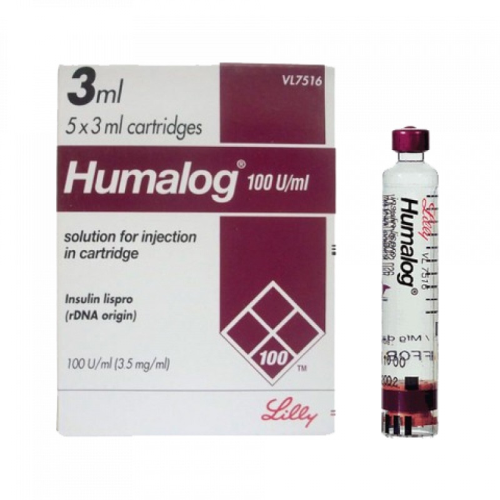CLASSIFICATION
Hormone and Synthetic Substitute / Antidiabetic Agent
ACNE
No
WATER RETENTION
No
HBR
No
HEPATOTOXICITY
No
AROMATIZATION
No
MANUFACTURER
Lilly
WAREHOUSE
International Warehouse 2
SUBSTANCE
Insulin
,
Insulin is a potent anabolic hormone that is crucial for the proper functioning of all humans. While it is produced naturally by the body, individuals with diabetes often require exogenous insulin. Some performance athletes also use it to promote lean muscle growth. However, the off-label use of insulin can be highly dangerous; extreme care is essential.
Exogenous insulin first became available in the 1920s. Unlike synthetic options, it was originally harvested from the pancreases of dogs, and later, cattle and pigs. Although there were concerns about its purity, the life-saving benefits of exogenous insulin for many individuals outweighed these issues. Without insulin treatment, diabetes can be life-threatening, and the risks associated with animal extracts were deemed acceptable. By the 1970s, these purity concerns had largely been addressed, leading to the introduction of synthetic insulin by Ciba in 1975. The synthetic version further evolved in 1982 with the launch of Humulin-R, a perfect replica of human insulin, which received FDA approval.
Functions and Characteristics of Insulin:Insulin, classified as a peptide hormone produced by the pancreas, plays a vital role in the metabolism of glucose, amino acids, and fatty acids. It also prevents the metabolic breakdown of glycogen, fat, and proteins.
For diabetic patients, there are two main types of diabetes that necessitate insulin use. Type I diabetes, which is usually an autoimmune condition, results in insufficient insulin production. Conversely, Type II diabetes occurs when the body produces insulin but fails to utilize it effectively at the cellular level, often linked to obesity.
As a peptide hormone, insulin positively influences liver function by promoting the conversion of glycogen to glucose and inhibiting the formation of glucose from non-carbohydrate sources. Additionally, insulin facilitates the transport of glucose into cells, which can help promote muscle growth. Elevated insulin levels are directly associated with increased protein synthesis and enhanced bone density, as well as the production of Insulin-Like Growth Factor-1 (IGF-1), another powerful anabolic hormone closely related to insulin.
Insulin's impact extends further; it also stimulates the production of Luteinizing Hormone (LH) and Follicle Stimulating Hormone (FSH), both of which can increase testosterone levels in the body. While this effect may not be particularly strong, it is noteworthy.
Effects of Insulin:Regardless of diabetes type, the primary effect of insulin is its regulation of blood sugar levels. Due to its strong anabolic and anti-catabolic properties, insulin can also benefit athletes. However, off-label use of exogenous insulin by non-diabetics may lead to significant fat gain and even death if not used carefully.
Despite these risks, some athletes find insulin beneficial for its anabolic effects, as long as they manage body fat levels. When insulin levels are elevated, the body’s capacity to burn stored fat diminishes. Therefore, those supplementing insulin for performance should adhere to a carefully planned diet, monitoring calorie and fat intake to ensure that glucose and protein are directed to muscle tissue rather than fat storage. The optimal time for insulin administration is right after intense weight training, accompanied by food, which will be detailed in the administration section.
With insulin's anabolic effects, it is possible to build significant lean muscle mass in a short period. Men may find it challenging to manage fat gain, but it is achievable under the right conditions. Combining insulin with anabolic steroids and Human Growth Hormone (HGH) is typically recommended in performance settings, as this pairing not only boosts growth but also aids in fat management.
Side Effects of Insulin:Insulin can cause side effects, primarily concerning hypoglycemia. For diabetic patients, hypoglycemia usually isn’t a significant issue when dosed correctly, but it poses risks in performance contexts. While it might not seem severe, hypoglycemia can lead to serious complications and even death.
Hypoglycemia occurs when blood glucose levels drop too low, marking it as the primary side effect of insulin. Key symptoms of hypoglycemia include:
If hypoglycemic symptoms arise, the individual should take immediate action by consuming quick-acting carbohydrates, like candy or sugary beverages. It’s crucial not to sleep after administering insulin, as drowsiness may signify the need for more carbohydrates. Ignoring this warning could lead to severe hypoglycemia during sleep, a situation that can be life-threatening. If severe hypoglycemia occurs, immediate medical assistance is necessary, which is why it’s advised to never administer insulin alone and to have someone present for safety.
A common concern regarding hypoglycemia is its severity. While it can usually be corrected easily, severe cases may lead to a diabetic coma. There have been reports of fatalities linked to performance-related insulin use, highlighting how serious the risks can be.
Other potential side effects of insulin include allergic reactions, which can manifest as swelling, itching, irritation, or tenderness at the injection site. While these effects are rare, they can also include rashes, shortness of breath, rapid heartbeat, wheezing, or drops in blood pressure. Medical attention should be sought if these symptoms occur.
One final side effect is the localized accumulation of fat when injections are repeatedly administered in the same area. To mitigate this, injection sites should be rotated.
Insulin Administration:When treating diabetes—Type I or Type II—the total insulin dosage can vary significantly based on individual patient needs. There isn’t a standard dosage due to these individual differences.
For performance enhancement, understanding the variety of insulin types available is essential as the chosen form influences the dosing plan. Fast-acting insulin variants like Humulin-R, Humalog, and Novolog are most appropriate for athletes.
Humalog exhibits its effects within about 15 minutes post-injection, peaking within 30-90 minutes and lasting approximately 3-5 hours. Novolog and Humulin-R have similar action windows, but Humulin-R works slightly slower. Humalog typically requires a prescription, while Humulin-R is available over-the-counter, making it accessible for most athletes. Those who have access to faster-acting insulins should slightly reduce their dosing accordingly.
The standard insulin dosage for performance enhancement is around 1 IU per 10 pounds of body weight. First-time users should start lower, beginning with 1 IU immediately after weight training and increasing by 1-2 IU per day until finding a comfortable level. If symptoms of hypoglycemia arise and are difficult to alleviate with simple carbohydrates, the dosage is likely too high. Many may never reach a dose of 1 IU per 10 pounds and there’s no issue with that; in fact, most men require much less.
The best time to provide insulin is immediately following weight training, during a short but critical window. Following the injection, at least 100 grams of carbohydrates should be consumed, along with 40-50 grams of protein, approximately 15 minutes post-injection.
While 100 grams of carbohydrates is the minimum requirement, many may need more, especially at higher insulin doses. However, it is crucial not to overuse insulin; starting with lower doses and gradually increasing as needed is advised.
Once insulin has been injected and carbohydrates as well as protein are consumed, it is imperative to have fast-acting carbohydrates readily available to counter any hypoglycemia symptoms. Responsible insulin users should never inject without quick-access carbohydrates within reach. If symptoms begin, consuming carbohydrates will help; the amount may vary based on factors such as the insulin dosage and individual genetics. After the post-injection meal, it is recommended to plan for another meal soon afterward.
Insulin Reviews:Insulin is a significant hormone crucial for health and proper bodily functions. As a performance-enhancing tool, it can significantly aid muscle building in ways that other hormones cannot, but its use is fraught with risks. Many men may struggle with fat management while using this hormone and might find better long-term results by avoiding it entirely. Nonetheless, insulin remains appealing to some and is quite popular among competitive bodybuilders, both amateur and professional. It is important to note that these individuals often possess exceptional genetics and typically use a wide range of other hormones to support their goals. Regular gym-goers using performance-enhancing hormones may find themselves gaining unwanted body fat with exogenous insulin.
Some athletes not focused on physique may also find insulin appealing since it does not show up on drug tests. They may use it in combination with HGH and low doses of testosterone or thyroid medications to navigate testing concerns, although their total insulin dose is usually relatively low.

